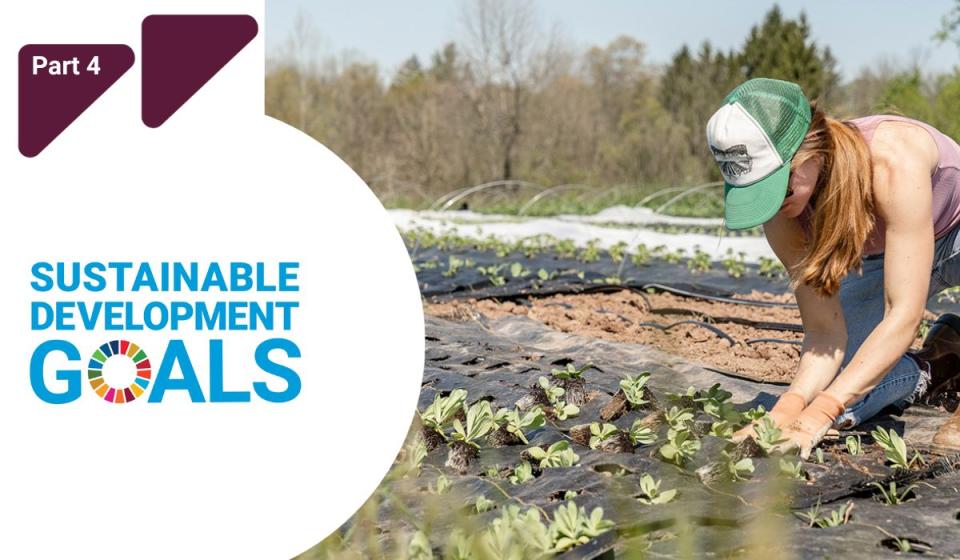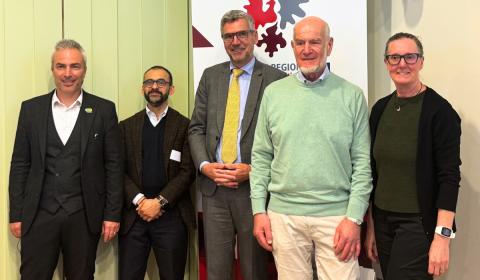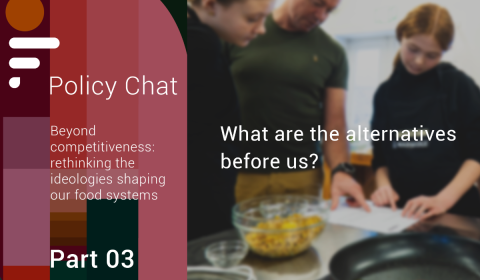
Image source: Zoe Schaeffer on Unsplash
Continuing our exploration of the SDGs and food security, we delve into the nuanced topic of education and awareness campaigns in our blog post titled "From Awareness to Action: Empowering Communities for Sustainable Food Systems." By critically examining the limitations of traditional campaigns and proposing transformative strategies, we aim to strengthen the potential for meaningful change and empower communities to lead the way in creating sustainable and equitable food systems.
Education and awareness campaigns have been heralded as effective tools for addressing global challenges, including food security and sustainability. While they play a crucial role in disseminating information and generating public support, their impact often falls short of driving tangible outcomes. Mere awareness alone does not lead to action or challenge the entrenched structures perpetuating these issues.
To overcome these limitations, a paradigm shift is necessary. Instead of passive recipients of knowledge, small-scale farmers and local communities must be empowered as active agents of change. This involves fostering genuine participation, amplifying marginalized voices, and supporting grassroots initiatives that challenge the status quo. By recognizing and building upon local knowledge and practices, communities can reclaim their agency and contribute to resilient and sustainable food systems.
To overcome the limitations of traditional education and awareness campaigns in achieving food security and sustainability, transformative strategies are essential. Instead of viewing communities as passive recipients of knowledge, empowering them as active agents of change can lead to more meaningful outcomes. For instance, empowering women farmers through targeted initiatives that provide training, access to resources, and support for collective decision-making can foster more inclusive and sustainable food systems1. Additionally, promoting farmer-to-farmer knowledge exchange facilitates shared learning and community-building, leveraging local expertise to create innovative solutions2. Community seed banks offer a practical approach to preserve local crop diversity and enhance food sovereignty3, while participatory research and decision-making engage local stakeholders in developing context-specific and sustainable solutions4. What’s more, adopting community-supported agriculture (CSA) models, where community members collectively participate in farming decisions, resource sharing, and crop distribution, can foster more inclusive and sustainable food systems5. Additionally, promoting agroecological practices that prioritize local and traditional knowledge, while minimizing external inputs, can not only enhance soil health and biodiversity but also empower communities to regain control over their food production6. Implementing community land trusts, where land is collectively owned and managed by local residents, ensures equitable access to resources and protects farmland from commercial exploitation7. Moreover, supporting cooperative farming ventures, where farmers pool resources and collaborate in production, marketing, and decision-making, can create a sense of solidarity and strengthen food security8. By embracing these and other alternative approaches that prioritize communal well-being over individual profit, we can transcend the boundaries of education and awareness campaigns and pave the way for a more equitable and sustainable future in our quest for food security and sustainability.
However, addressing complex challenges like food security and sustainability requires more than education and awareness campaigns alone. Advocacy and policy engagement are vital to dismantling systemic barriers and driving meaningful change. By mobilizing public support, advocating for policy reforms, and holding decision-makers accountable, we can address the root causes of food insecurity and unsustainable practices.
Collaboration and solidarity among diverse stakeholders are paramount. Education and awareness campaigns should foster partnerships between governments, civil society organizations, and communities, creating inclusive platforms for dialogue, knowledge exchange, and joint problem-solving. By working together, we can challenge the status quo, promote equitable practices, and ensure a more sustainable future for all.
While education and awareness campaigns serve as essential starting points, it is crucial to recognize their limitations and embrace a holistic approach. By combining education, advocacy, policy engagement, and community empowerment, we can drive meaningful change that goes beyond raising awareness. Let us strive to create a world where sustainable food systems are accessible to all by fostering dialogue, collaboration, and action that transcend the boundaries of education and awareness alone.
In conclusion, to address the complexities of food security and sustainability, we must move beyond traditional education and awareness campaigns. By embracing alternative approaches that empower communities, challenge the status quo, and advocate for systemic transformations, we can pave the way for a more equitable and sustainable future. Together, let us embark on a journey of dialogue, collaboration, and action to create a world where food security and sustainability are achievable for all9.
References
1 Benítez, B., Nelson, E., Romero Sarduy, M. I., Ortiz Perez, R., Crespo Morales, A., Casanova Rodriguez, C., ... & Daniels, J. (2020). Empowering women and building sustainable food systems: A case study of cuba's local agricultural Innovation Project. Frontiers in Sustainable Food Systems, 4, 554414.
2 Caswell, M., Maden, R., McCune, N., Mendez, V. E., Bucini, G., Anderzén, J., ... & Juncos-Gautier, M. A. (2021). Amplifying agroecology in Vermont: Principles and processes to foster food systems sustainability.
3 Porcuna-Ferrer, A., Fiala, V., Freyer, B., van Etten, J., Vernooy, R., & Probst, L. (2020). Do community seed banks contribute to the social-ecological resilience of communities? A case-study from western Guatemala. International Journal of Agricultural Sustainability, 18(3), 232-249.
4 Jani, A., Exner, A., Braun, R., Braun, B., Torri, L., Verhoeven, S., ... & Woollhead, C. (2022). Transitions to food democracy through multilevel governance. Frontiers in Sustainable Food Systems, 6, 541.
5 Bonfert, B. (2022). ‘What we'd like is a CSA in every town.’Scaling community supported agriculture across the UK. Journal of Rural Studies, 94, 499-508.
6 Kennedy, G., Wang, Z., Maundu, P., & Hunter, D. (2022). The role of traditional knowledge and food biodiversity to transform modern food systems. Trends in Food Science & Technology.
7 Sangha, K. K., Maynard, S., Pearson, J., Dobriyal, P., Badola, R., & Hussain, S. A. (2019). Recognising the role of local and Indigenous communities in managing natural resources for the greater public benefit: Case studies from Asia and Oceania region. Ecosystem Services, 39, 100991.
8 Agarwal, B., & Dorin, B. (2019). Group farming in France: Why do some regions have more cooperative ventures than others?. Environment and Planning A: Economy and Space, 51(3), 781-804.
9 Garcia, S. N., Osburn, B. I., & Jay-Russell, M. T. (2020). One health for food safety, food security, and sustainable food production. Frontiers in Sustainable Food Systems, 4, 1.


